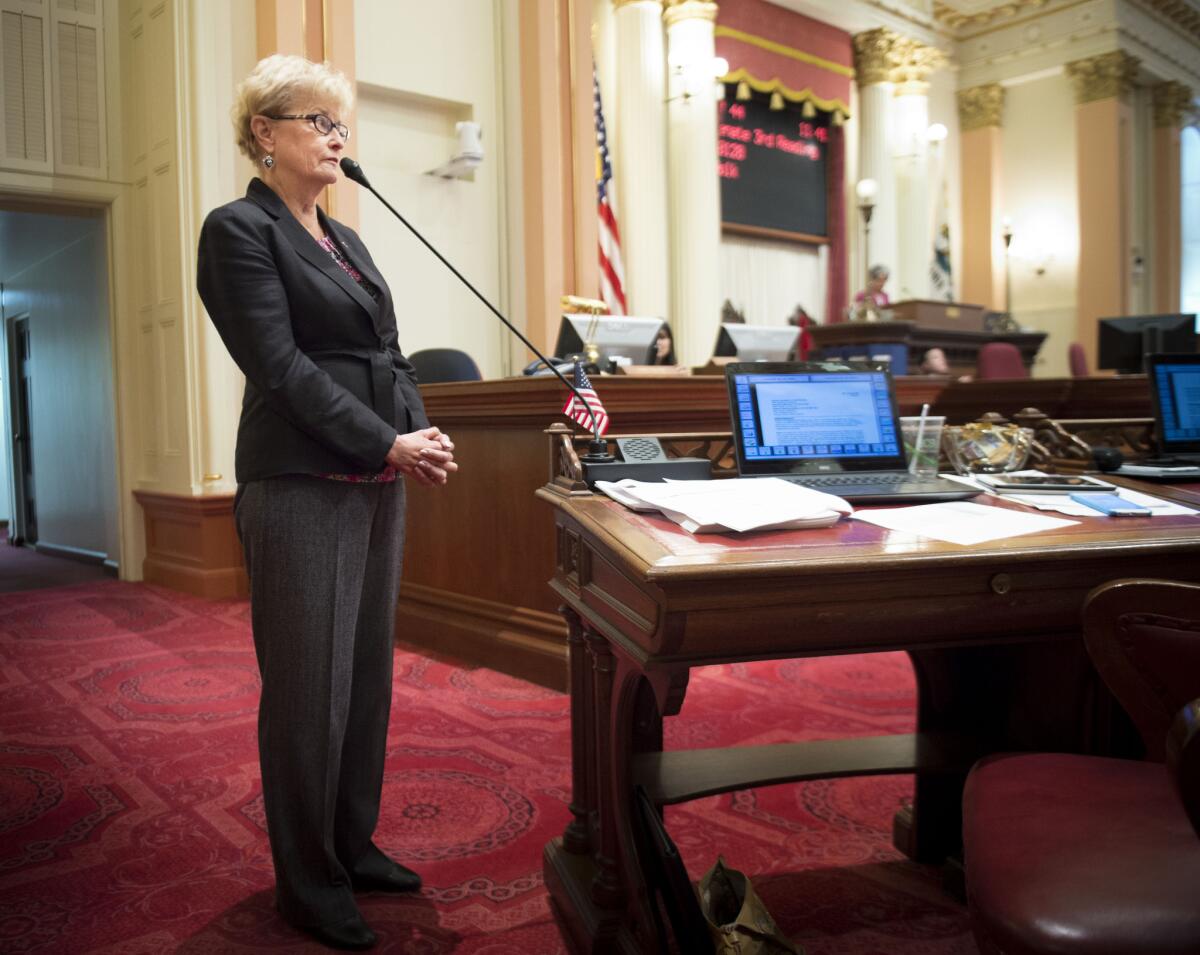Editorial: California needs a right-to-die law

Sen. Sharon Runer (R-Lancaster) used her own medical experience to voice her opposition on SB 128, a bill that would allow physicians to assist in the death of terminally ill patients, in Sacramento on June 4.
Much-needed and long-overdue legislation that would allow terminally ill Californians to end their lives peacefully and painlessly got off to a promising start earlier this year, passing two Senate committees and winning approval on the Senate floor. The California Medical Assn., previously a formidable foe of such bills, dropped its opposition. But on Tuesday, SB 128 faces its toughest hurdle yet — a hearing in the Assembly Health Committee, where support is shaky. Objections range from moral qualms about allowing people to kill themselves to worries that low-income people and those who aren’t fluent in English will be pressured to take lethal doses of prescription medication.
We strongly urge the committee to approve the bill and send it on to the Assembly.
The reality is that if the bill fails, all Californians who face a future of terrible pain or loss of cognitive ability will be deprived of the right to exert some control over their last days and the manner of their deaths, at least here in their own state. Those who can afford to might head to the increasing number of states that do allow residents to make such decisions, as Brittany Maynard, the young California woman stricken with brain cancer, did when she moved to Oregon and ended her life in 2014. Those without the means to move will have few if any choices.
SB 128 would allow doctors to write a prescription for a lethal dose of drugs for patients whose illnesses would otherwise kill them within six months. It is replete with protections for those patients, including safeguards to ensure that they are of sound mind, that they know about the alternatives of hospice and palliative care, and that insurance companies do not use the right to die as an excuse to withhold other medical treatment. Doctors would not be allowed to administer the medication; patients would be expected to take it themselves. The bill also would require translators for patients who are not fluent in English.
Many people — including some legislators, perhaps — believe on religious grounds that ending one’s own life is wrong, regardless of the circumstances. They are entitled to respect for their beliefs; at the same time, they have an obligation to respect the different beliefs held by others.
This issue isn’t going away. A lawsuit already seeks to strike down rules against allowing doctors to write lethal prescriptions — a legal tactic that worked in New Mexico — and advocates of the right to die have vowed to put an initiative on the California ballot if the Legislature balks on SB 128. Polls have repeatedly shown that most Californians support a patient’s right to make these life-or-death decisions.
But legal rulings and ballot measures are unlikely to be as carefully and protectively crafted as SB 128. It is simply wrong to deny terminally ill Californians the ability to choose the course of their final days.
Follow the Opinion section on Twitter @latimesopinion and Facebook
More to Read
A cure for the common opinion
Get thought-provoking perspectives with our weekly newsletter.
You may occasionally receive promotional content from the Los Angeles Times.






